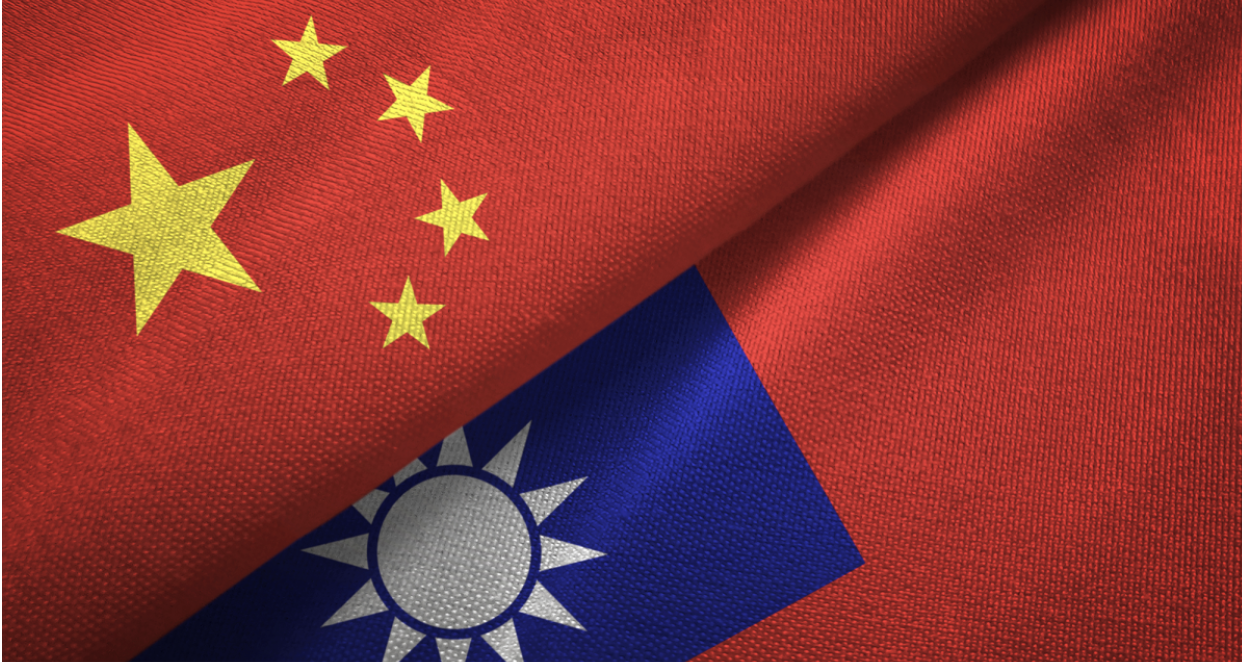Image via the Asian Pacific Foundation of Canada
***
It’s not a secret that the Chinese government seeks to reunify with their “renegade” territories: Hong Kong, Macau, and Taiwan. In 1997, the British government ceded Hong Kong to China; in 1999, Portugal did the same with Macau. But Taiwan remained independent, slipping out of China’s grasp.
Recently, China’s goal of repossessing Taiwan has become increasingly relevant. Chinese President Xi Jinping continues to assert a desire for reclamation, and the Chinese Communist Party (CCP) has been increasing its military power with the People’s Liberation Army (PLA). But to fully understand the Chinese government’s obsession with Taiwan, it is essential to know the history between the two nations.
Taiwan first fell under Chinese rule in the seventeenth century, but became a Japanese colony in 1895 following China’s loss in the first Sino-Japanese War. After Japan lost the Second World War in 1945, however, Taiwan returned to the Chinese sphere of influence. At this point, China was under the rule of General Chiang Kai-shek, who led the National People’s Party, or the Kuomintang, from 1928 to 1949.
After the Chinese Revolution of 1949, Communist leader Mao Zedong eventually won control of China, establishing the People’s Republic of China (PRC). This forced the Kuomintang to flee to Taiwan, where Chiang ruled the nationalist Republic of China in Taiwan. Taiwan remained a one-party state for decades until the island transitioned to a democracy in the 1980s.
Ever since this split, China has viewed Taiwan as a breakaway province, one that has dangerous implications for China’s national security. The United States of America—undoubtedly one of China’s greatest present-day rivals—strengthening its ties with Taiwan has only made China more wary. Thus, the Chinese government hopes that reestablishing Taiwan as a part of China would regulate any security issues that may arise with greater ease.
Since his rise to power in 2012, Xi Jinping has lobbied for China’s acquisition of Taiwan. In his 2022 reelection speech, Xi promised that the reunification of China is not only possible, but inevitable. The PRC claims that this procurement will be peaceful, but also completely dismisses Taiwan’s idea of a dual-government system, asserting that this form of government would violate the principles and stability of a unified China. Xi also made clear that he is absolutely willing to use force if he and the CCP deem it necessary.
China has also recently become far more critical of its global contemporaries. In February of 2025, the U.S. Department of State removed a line from its website concerning American opposition to Taiwanese independence. Guo Jiakun, the current spokesperson of the Ministry of Foreign Affairs of China, quickly responded by stating that the Trump administration was damaging China-U.S. relations by supporting the independence of Taiwan.
On the other hand, Taiwan’s Ministry of Foreign Affairs has responded positively to the change in American documentation. Although the United States makes it a point not to vocally support Taiwan as an independent nation for a plethora of reasons (its deliberate stance of strategic ambiguity to maintain diplomatic relations; its adherence to the “One China Policy” that states the U.S. government acknowledges [but does not endorse] Beijing’s position that Taiwan is a part of China; etc.), they are still Taiwan’s largest arms supplier and its strongest ally. Both China and Taiwan view America’s removal of its statement of opposition to Taiwanese independence from the Department of State website as an indicator that the U.S. now endorses independence for Taiwan.
This raises the question: is China ready for war? According to foreign news reports, Beijing is currently fortifying its army. Some intelligence estimates that Xi has ordered the PLA, which is quickly overtaking the U.S. in terms of military strength, to be ready to invade Taiwan by 2027. China already has the world’s largest navy and maritime fighting force, yet this has not stopped it from continuing to ramp up its naval power with some of the most powerful warships in the world.
Some American scholars do not believe this strengthening of the Chinese military arsenal signifies any intent to invade Taiwan. Instead, they argue that the CCP is merely attempting to maintain its power, not expand it. In other words, the PLA’s expansion might only be politically motivated, as perhaps seen in how 40% of training is spent on political topics and the fact that political commissars lead many PLA units. Additionally, the Chinese government has not (yet) made any speeches glorifying war with Taiwan, nor have there been reports that specific military studies or strategies are currently being produced (though this does not necessarily mean that such plans do not exist, just that they may not yet be known to the public).
It is, of course, very reasonable to think that China’s recent increase in military power is a signifier that the CCP is ready to reclaim what they believe is theirs. By bolstering its navy and maritime fighting force, the Chinese government may be preparing to launch a blockade or siege on the island of Taiwan.
But it is also crucial to understand that much of this is viewed through a Western lens. People are inherently biased when it comes to trying to understand foreign politics, especially Chinese politics. It is ill-advised and can even be dangerous to make assumptions about foreign nations. That being said, picking up on clear patterns is important. The Chinese government may indeed be revitalizing its military simply to (re)invigorate national pride. But it is not unlikely that they also have more combat-oriented motivations. By looking at these current topics from every angle, one can work through their biases and come to their own conclusions.
